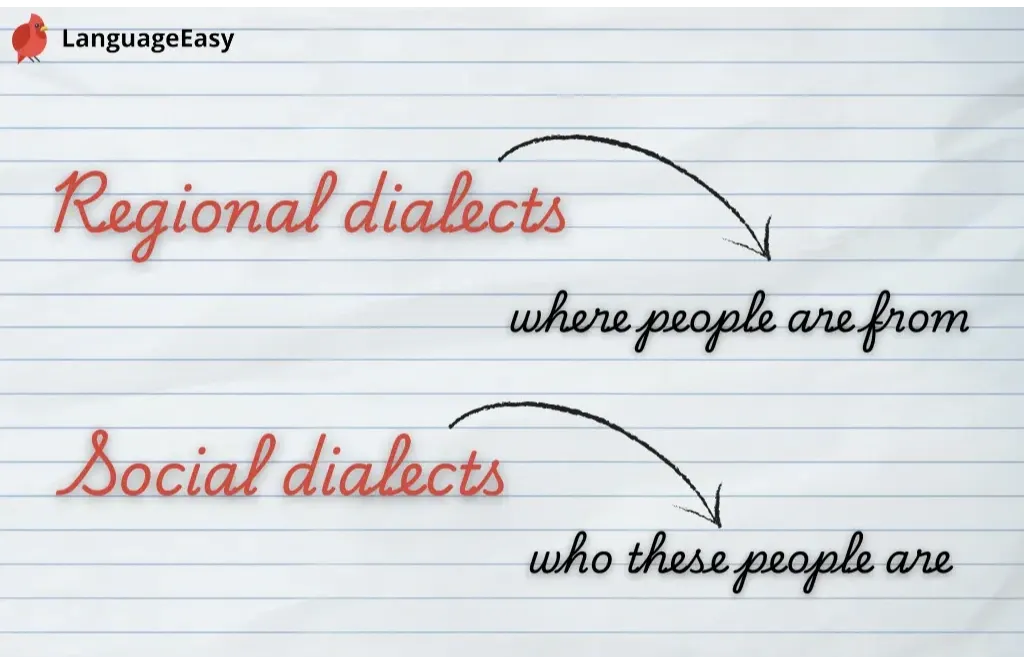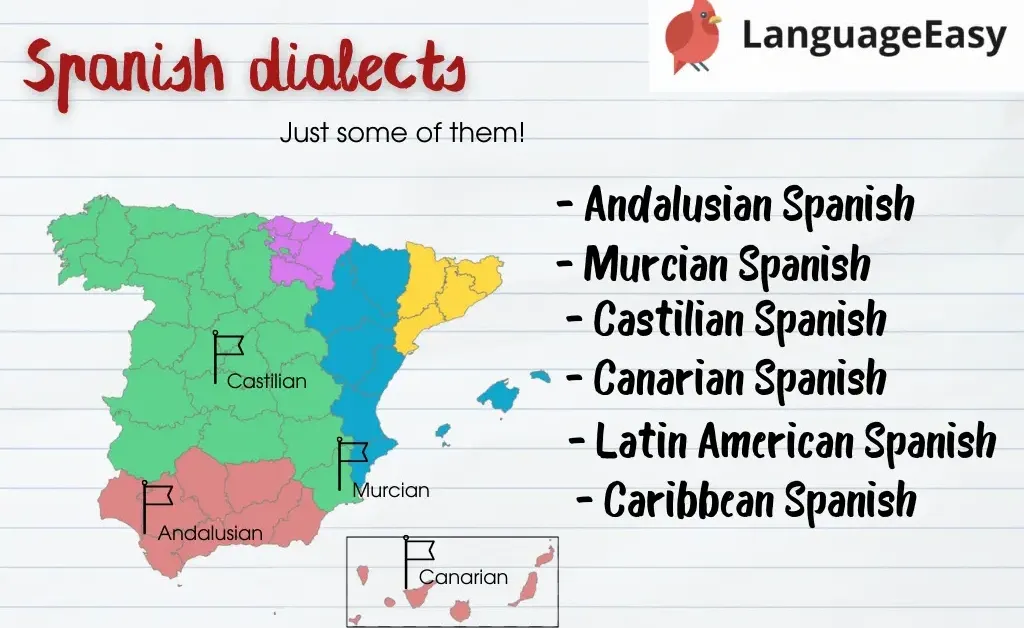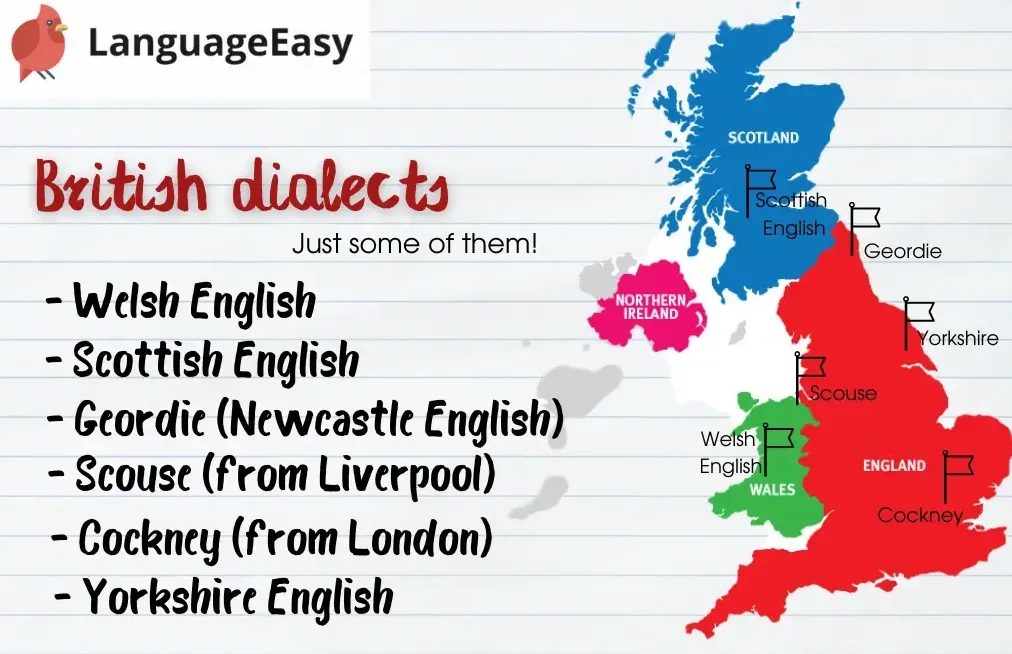A dialect of a language... an accent of a language... Are we talking about the same thing?
If you’re unsure whether these terms mean the same or different things, don’t worry — you’re not alone. Many language learners confuse them, and even use them interchangeably.
But the truth is: dialect and accent are not the same! Let’s explore the difference in a simple and clear way. 🌍✨
If you’re unsure whether these terms mean the same or different things, don’t worry — you’re not alone. Many language learners confuse them, and even use them interchangeably.
But the truth is: dialect and accent are not the same! Let’s explore the difference in a simple and clear way. 🌍✨
Dialect vs. Accent:
Are They the Same Thing?
Are They the Same Thing?

🗣️ WHAT IS A DIALECT?
A dialect is a variation of a language spoken in a specific part of a country or by a certain social group.
It includes changes not just in pronunciation but also in:
▪️Vocabulary (different words)
▪️Grammar (sentence structure, verb forms)
▪️Pronunciation (how sounds are produced)
A dialect is a variation of a language spoken in a specific part of a country or by a certain social group.
It includes changes not just in pronunciation but also in:
▪️Vocabulary (different words)
▪️Grammar (sentence structure, verb forms)
▪️Pronunciation (how sounds are produced)
Types of Dialects:
▫️Standard Dialects – these are taught in schools and supported by institutions. They are often considered “prestigious” and spoken by educated or higher-class people.
▫️Non-Standard Dialects – these are not taught formally and are often linked to local or working-class speech.
Two Main Categories:
▫️Regional Dialects – language variations across different geographical areas.
▫️Social Dialects – differences in language based on social or economic background.
▫️Standard Dialects – these are taught in schools and supported by institutions. They are often considered “prestigious” and spoken by educated or higher-class people.
▫️Non-Standard Dialects – these are not taught formally and are often linked to local or working-class speech.
Two Main Categories:
▫️Regional Dialects – language variations across different geographical areas.
▫️Social Dialects – differences in language based on social or economic background.
🔊 WHAT IS AN ACCENT?
An accent is the way you pronounce words. It refers only to pronunciation — not grammar or vocabulary.
Your accent is influenced by:
▪️Your first language
▪️Your region or country
▪️Your social class
▪️How long you’ve studied another language
📌 Examples:
A person from Spain speaking English might have a Spanish accent in English.
American, British, and Australian English each have distinct accents, even though they're all English!
An accent is the way you pronounce words. It refers only to pronunciation — not grammar or vocabulary.
Your accent is influenced by:
▪️Your first language
▪️Your region or country
▪️Your social class
▪️How long you’ve studied another language
📌 Examples:
A person from Spain speaking English might have a Spanish accent in English.
American, British, and Australian English each have distinct accents, even though they're all English!
🧭 SO... HOW TO TELL THE DIFFERENCE?
It may get a bit tricky when naming accents and dialects — both often take the name of the region they come from! For example:
Welsh dialect – refers to the way people in Wales speak English, including their vocabulary and grammar.
Welsh English accent – refers only to the pronunciation of English spoken in Wales.
It may get a bit tricky when naming accents and dialects — both often take the name of the region they come from! For example:
Welsh dialect – refers to the way people in Wales speak English, including their vocabulary and grammar.
Welsh English accent – refers only to the pronunciation of English spoken in Wales.
👉 So, when you’re talking about the way people pronounce words — you’re talking about an accent.
But if you notice different words, expressions, or grammar — that’s a dialect!
But if you notice different words, expressions, or grammar — that’s a dialect!
💬 FINAL THOUGHTS AND CONCLUSION
Dialects and accents are beautiful signs of identity, culture, and history. Every language is full of them, and they remind us of how diverse and rich our world is!
Understanding the difference will help you:
▫️Improve your language awareness
▫️Speak and listen more accurately
▫️Appreciate the uniqueness of each speaker
Dialects and accents are beautiful signs of identity, culture, and history. Every language is full of them, and they remind us of how diverse and rich our world is!
Understanding the difference will help you:
▫️Improve your language awareness
▫️Speak and listen more accurately
▫️Appreciate the uniqueness of each speaker
✨ Like this post?
Share it with your language learning friends! And don’t forget to subscribe to the LanguageEasy Newsletter to be the first to receive new articles, YouTube videos, and fun facts about languages from around the world 🌍📬
Share it with your language learning friends! And don’t forget to subscribe to the LanguageEasy Newsletter to be the first to receive new articles, YouTube videos, and fun facts about languages from around the world 🌍📬
LanguageEasy Newsletter
Subscribe to LanguageEasy Newsletter to receive updates, language learning tips and more!
(❗sometimes e-mails may come to your spam box - be attentive and get a newsletter out of it 😉)
(❗sometimes e-mails may come to your spam box - be attentive and get a newsletter out of it 😉)
Thank you for subscribing! :)
Now you'll be receiving LanguageEasy newsletters with my updates, language learning tips and more!



